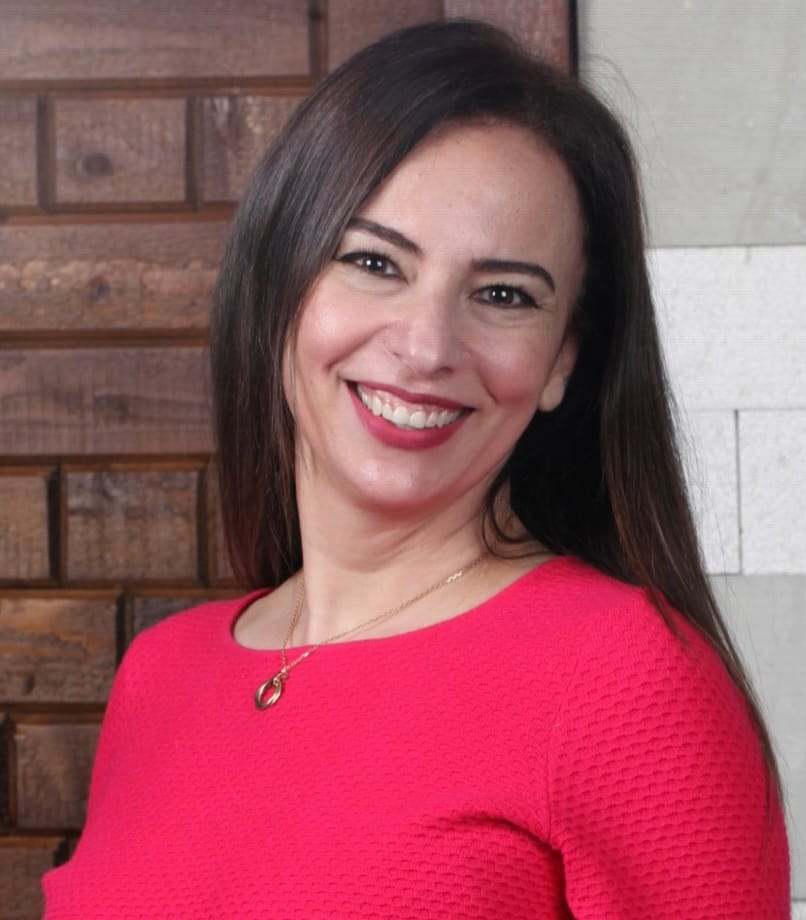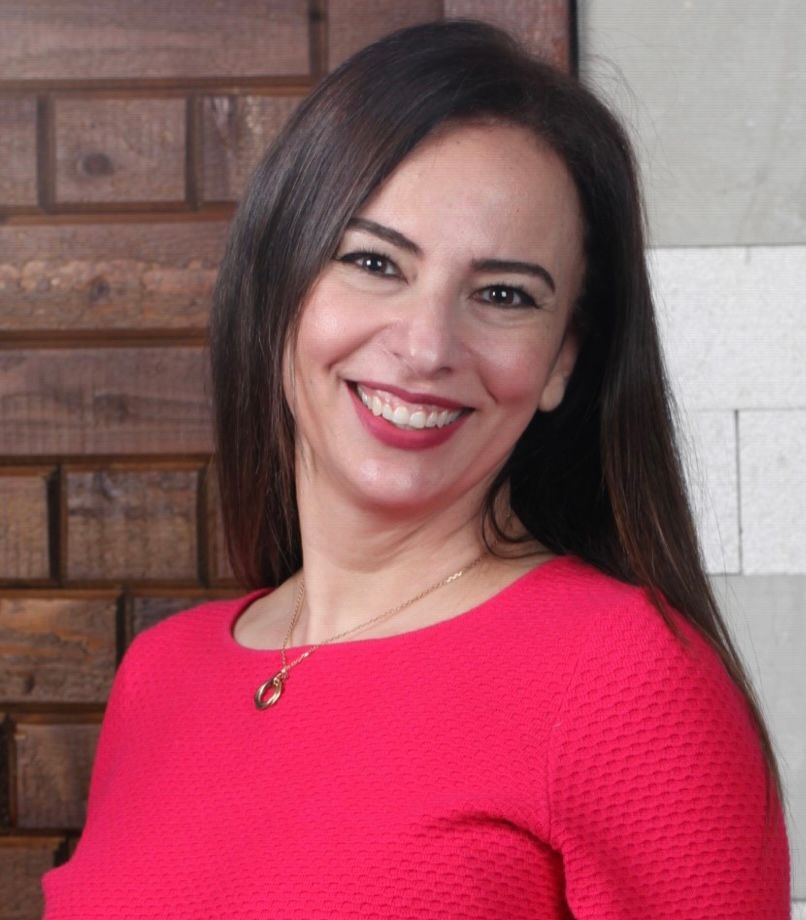Fresh Faculty: Lara Halaoui
Lara Halaoui is a visiting professor of chemistry at Amherst College and a professor of chemistry at the American University of Beirut. She received a bachelor’s degree from the American University of Beirut and later attended Duke University for her Ph.D.


Q: Where are you from originally, and how long will you be here as a visiting professor?
A: I’m originally from a town in the south of Lebanon called Tyre. Now, I live in Beirut, and I’m a professor of chemistry at the American University of Beirut. I have been on the faculty since 1998, and I came [to Amherst College] on January 26, [2022]. I will be here in Amherst for 18 months as a visiting professor in the Department of Chemistry.
Q: What sparked your interest in chemistry?
A: In high school, I actually loved mathematics; it was my favorite subject. But I also loved arts, literature, and poetry — pretty much everything. When I was trying to decide what I wanted to do when I went to college, I thought I wanted to do something more artistic. So, I actually chose architecture. But, during my first year, I started taking other classes just to explore other possibilities. I took a chemistry class and I loved it. I just loved the concepts, the thinking, the explorations; I became very curious about this subject matter. I took mathematics and biology, but something about the understanding that chemistry allows for the physical world, and the mathematical language that it uses, captivated me. It took me a while, but I realized that I like to explore and to go deeper into understanding of things that I didn’t know the answer to. So that’s how I decided to major in chemistry, and particularly, at a very early stage I decided on physical chemistry because of the combination of chemistry and mathematics. It was sort of finding my way; it took me some time exploring.
Q: Are you able to conduct research while at Amherst as a visiting professor?
A: This is a sabbatical for me, in a way; I’m on leave from the American University of Beirut. In addition to teaching, I am using the time to complete my scientific papers from work; I have the lab still running at the American University of Beirut. At the same time, there are two colleagues here in the chemistry department who I’ve started discussing with about possible collaborative projects. Hopefully, we will set up new experiments soon!
Q: What problems does your research tackle?
A: My work focuses on finding renewable energy solutions. I’m interested in fundamental and practical properties of nanomaterials, [such as] nanostructures, photonic crystals, quantum dots, and catalytic nanoparticles that can be used in electrochemical and photoelectrochemical systems to convert light from the sun into electrical or chemical energy. I’m very interested in artificial photosynthesis. One particular process that we are interested in, for example, is the splitting of water. That’s something that we have worked on for a while, particularly finding catalysts or electro-catalysts that can allow us to do the reactions involved in the splitting of water more efficiently and using Earth-abundant materials. Another process that I’m interested in is carbon dioxide reduction.
I think that this particular topic has great implications for the world because of the need for renewable energy solutions to limit the use of fossil fuels and their harm to the environment. So I’m interested in subjects that allow a deep understanding of the world and fundamental science but also have the potential of making an impact on humanity, on Earth, and on our environment.
Q: What were your motivations for coming to Amherst?
A: For one, this college has an excellent reputation everywhere for excellence in teaching, academic rigor for the talented students, and also for the diverse students that you have here. But one part that also interested me is the [college’s] efforts in inclusion in the sciences and increasing diversity. This is something that is very important to me; I’ve worked a lot to mentor underrepresented groups, particularly women, in science. I liked this opportunity to engage with the diverse students here and add a new voice to this work here at Amherst College to increase diversity and inclusion in the scientific fields. I also felt that this location is nice because it also allows opportunities to engage with different faculty members in the Five Colleges.
I want to also say that I’ve known [Amherst] from the beginning because there are old historical connections between Amherst College and the American University of Beirut. The founding father of the American University of Beirut, Daniel Bliss, was actually a graduate of this college. Isn’t that fun?
Q: When you’re not doing research or teaching, how do you like to spend your free time?
A: I like hiking and being outdoors in nature and light. So, I love going on long walks, whether [it’s] cold or hot. I am an avid literature and poetry reader. I also write a little bit, but nothing significant! And I like to paint a little bit. It’s a good way of expressing one’s creativity and of yourself, but in a bit of a different way than doing scientific work.
When I was very young, I wanted to be a fashion designer. And then I wanted to be an astronaut. So you can see that I’ve always liked part of the arts and parts of the deep sciences. This is another attractive thing for me about coming to a liberal arts college. In fact, I find it very refreshing that some of the students that we’re teaching [in chemistry] are majoring in, you know, English or philosophy. It gives us a nice, broad view of the world.
Q: Looking back, what is something that you wish you knew as a student that you know now?
A: I used to be very upset if I didn’t get an A or ace an exam. I wanted things to be perfect in terms of how I did in my schoolwork. It was very important to me. And sometimes I didn’t take as much time to rest or to do other things. So maybe looking back, I would have used my time also to explore, at an earlier age, other interests, which I explored later. I wish, for example, that I took painting classes when I was in college … Instead, I took a painting class later in life, you know? So it’s not that I didn’t have fun during my college years, but I think that there could have been a better balance between work and rest.
Also, looking back, it’s not even just about the grades; it’s about how we push ourselves to always be perfect. And in fact, now, I think that one of the important things that happened to me is to realize that things do not have to always be perfect. I know we hear this all the time, but a bit of a setback sometimes can steer you in a direction that is a good and important direction. And when you’re talking, [for example], about research, sometimes you think, “Oh, well, this is not working the way I want it.” But you end up discovering something else. Especially when you want to do something creative, it’s important to create this balance that allows space for — now I’m becoming a bit philosophical — these imperfect things, or one’s creativity, to also flourish.





Comments ()